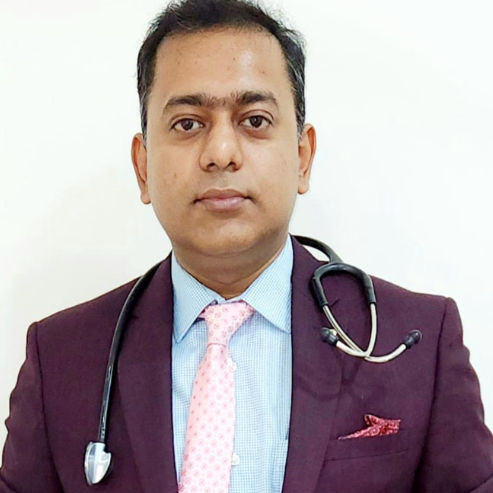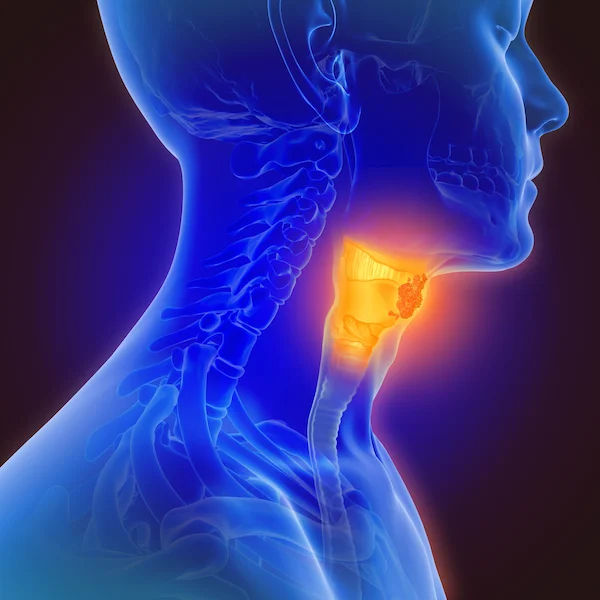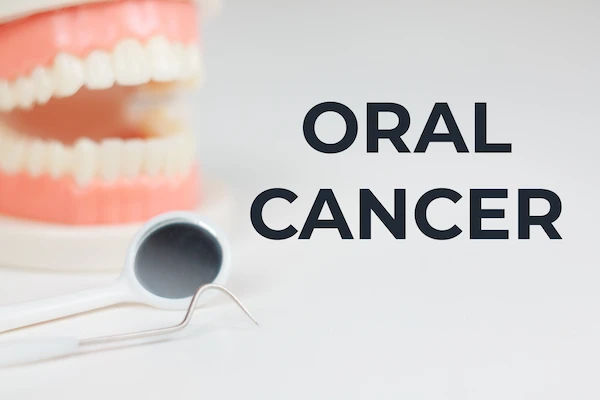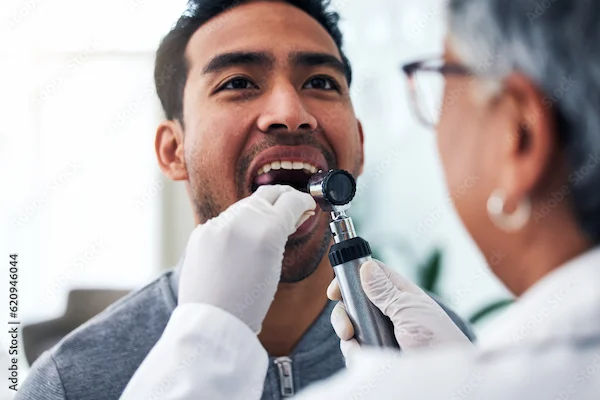Warning Signs of Oral Cancer to Watch For
Know about the warning signs of oral cancer, symptoms, causes, how to reduce the risk and what diagnostic tests are to be done.

Written by Dr. D Bhanu Prakash
Reviewed by Dr. Rohinipriyanka Pondugula MBBS
Last updated on 7th Aug, 2025

Oral cancer is a serious health condition that affects thousands of people every year. The good news is that early detection can significantly improve treatment outcomes. Knowing the warning signs can help you seek medical attention promptly, increasing the chances of successful recovery.
In this article, we’ll discuss the key symptoms of oral cancer, possible causes, and steps you can take to protect your oral health.
What Is Oral Cancer?
Oral cancer refers to cancerous growths that develop in the mouth, including the lips, tongue, cheeks, gums, roof or floor of the mouth, and throat. If left untreated, it can spread to other parts of the body, making early detection crucial.
Consult a top cancer specialist for the best advice
Common Warning Signs of Oral Cancer
Being aware of these symptoms can help you identify potential issues early:
1. Persistent Mouth Sores or Ulcers
- A sore or ulcer that does not heal within two weeks.
- May appear as a red or white patch inside the mouth.
2. Unexplained Pain or Discomfort
- Persistent pain in the mouth, throat, or ears.
- Difficulty or pain while chewing, swallowing, or speaking.
3. Lumps or Thickening in Mouth or Neck
- A noticeable lump, rough spot, or thickened area in the mouth, lips, or neck.
- Swelling that doesn’t go away.
4. White or Red Patches Inside the Mouth
- Leukoplakia (white patches) or erythroplakia (red patches) that do not disappear.
- These patches may become cancerous over time.
5. Difficulty Moving the Jaw or Tongue
- Stiffness or numbness in the jaw, tongue, or lips.
- Changes in speech, such as slurring.
6. Loose Teeth Without Dental Cause
- Teeth become loose without any gum disease or injury.
- Poor healing after tooth extractions.
7. Unexplained Bleeding
- Bleeding in the mouth without any obvious cause.
8. Sudden Weight Loss
- Unintentional weight loss due to difficulty eating or swallowing.
If you experience any of these symptoms for more than two weeks, consult a doctor immediately.
What Causes Oral Cancer?
Several factors increase the risk of oral cancer, including:
- Tobacco Use – Smoking cigarettes, cigars, pipes, or chewing tobacco.
- Excessive Alcohol Consumption – Heavy drinking raises the risk significantly
- HPV Infection – Certain strains of the human papillomavirus (HPV) are linked to oral cancer.
- Sun Exposure – Prolonged sun exposure increases lip cancer risk.
- Poor Oral Hygiene – Neglecting dental health can contribute to cancerous changes.
- Unhealthy Diet – A diet low in fruits and vegetables may increase risk.
How to Reduce Your Risk of Oral Cancer
1. Quit Tobacco and Limit Alcohol
Avoid smoking, chewing tobacco, and excessive alcohol consumption.
2. Maintain Good Oral Hygiene
- Brush and floss daily.
- Visit your dentist regularly for check-ups.
3. Eat a Healthy Diet
- Include plenty of fruits, vegetables, and whole grains.
- Foods rich in antioxidants (berries, leafy greens) help protect cells.
4. Protect Yourself from HPV
- Get vaccinated against HPV if eligible.
- Practice safe oral hygiene and safe sex.
5. Use Sun Protection for Lips
- Apply lip balm with SPF when outdoors.
- Wear a wide-brimmed hat in the sun.
6. Regular Self-Exams
- Check your mouth monthly for sores, lumps, or unusual patches.
- Report any changes to your doctor or dentist.
When to See a Doctor
If you notice any persistent symptoms (lasting more than two weeks), consult a healthcare professional. Early diagnosis is key to successful treatment.
Diagnosis May Include:
Following examination and tests:
- Physical Examination – A doctor checks for lumps or abnormalities.
- Biopsy – A small tissue sample is tested for cancer cells.
- Imaging Tests – X-rays, CT scans, or MRIs to detect spread.
Final Thoughts
Your oral health is a vital part of your overall well-being. By staying aware of the warning signs and making healthy lifestyle choices, you can reduce your risk and catch problems early. If you notice anything unusual, take action.
Consult a top cancer specialist for the best advice
Consult a top cancer specialist for the best advice

Dr Sunita Samleti
Oncologist
18 Years • M.D. (Pathology)- TN Medical College, Mumbai University, Mumbai, Mar 2005 M.B.B.S. Grant Medical College, Mumbai University, Mumbai, Oct 1999
Chinagadila
Apollo Hospitals Health City Unit, Chinagadila

Dr Gowshikk Rajkumar
Oncologist
10 Years • MBBS, DMRT, DNB in Radiation oncology
Bengaluru
Apollo Clinic, JP nagar, Bengaluru

Dr. Sanchayan Mandal
Oncologist
17 Years • MBBS, DNB Raditherapy, DrNB Medical Oncology
East Midnapore
VIVEKANANDA SEBA SADAN, East Midnapore

Dr.sanchayan Mandal
Oncologist
17 Years • MBBS, DrNB( MEDICAL ONCOLOGY), DNB (RADIOTHERAPY),ECMO. PDCR. ASCO
Kolkata
Dr. Sanchayan Mandal Oncology Clinic, Kolkata

Dr. Gopal Kumar
Head, Neck and Thyroid Cancer Surgeon
15 Years • MBBS, MS , FARHNS ( Seoul, South Korea ), FGOLF ( MSKCC, New York )
Delhi
Apollo Hospitals Indraprastha, Delhi
(25+ Patients)
Consult a top cancer specialist for the best advice

Dr Sunita Samleti
Oncologist
18 Years • M.D. (Pathology)- TN Medical College, Mumbai University, Mumbai, Mar 2005 M.B.B.S. Grant Medical College, Mumbai University, Mumbai, Oct 1999
Chinagadila
Apollo Hospitals Health City Unit, Chinagadila

Dr Gowshikk Rajkumar
Oncologist
10 Years • MBBS, DMRT, DNB in Radiation oncology
Bengaluru
Apollo Clinic, JP nagar, Bengaluru

Dr. Sanchayan Mandal
Oncologist
17 Years • MBBS, DNB Raditherapy, DrNB Medical Oncology
East Midnapore
VIVEKANANDA SEBA SADAN, East Midnapore

Dr.sanchayan Mandal
Oncologist
17 Years • MBBS, DrNB( MEDICAL ONCOLOGY), DNB (RADIOTHERAPY),ECMO. PDCR. ASCO
Kolkata
Dr. Sanchayan Mandal Oncology Clinic, Kolkata

Dr. Gopal Kumar
Head, Neck and Thyroid Cancer Surgeon
15 Years • MBBS, MS , FARHNS ( Seoul, South Korea ), FGOLF ( MSKCC, New York )
Delhi
Apollo Hospitals Indraprastha, Delhi
(25+ Patients)



